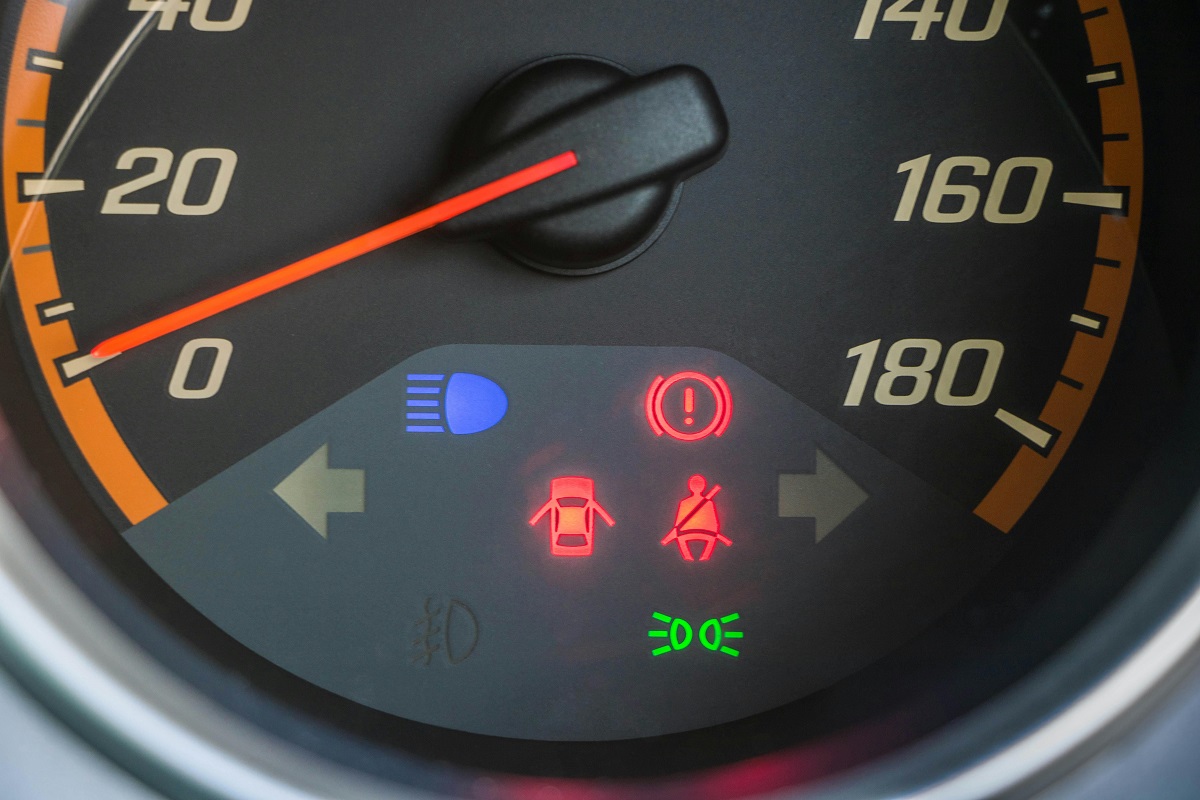The driving landscape is constantly evolving, and 2025 has brought a fresh wave of regulations that are reshaping how we navigate the roads. These new car rules range from environmental policies to cutting-edge technology mandates, each designed to address modern challenges. For drivers everywhere, staying up to date on these regulations is more than a matter of compliance; it’s a matter of safety and responsibility. Some of these rules may come as a surprise, especially if you haven’t been following the rapid shifts in automotive policy.
Mandatory Speed Limiters on New Cars

In 2025, newly manufactured cars in several countries must be equipped with mandatory speed limiters to enhance road safety and reduce accidents. These devices automatically restrict vehicles from exceeding posted speed limits using GPS and onboard sensors. While intended to save lives, some drivers see it as a controversial move limiting their control over their cars.
Biometric Driver Identification Systems

Biometric systems like facial recognition and fingerprint scanning are now required in some regions to verify the driver’s identity before the vehicle starts. This rule aims to prevent unauthorized usage, especially vehicle theft or underage driving. However, it raises significant concerns about data privacy and technology reliability.
Ban on Gasoline-Powered Car Sales

Several cities and countries have enforced a ban on the sale of new gasoline-powered vehicles starting in 2025 to support environmental sustainability. Drivers looking to purchase a new car are now required to opt for electric or hybrid alternatives. This regulation is pushing manufacturers and consumers to rethink long-term transportation needs.
Automatic Emergency Braking Required

Automatic emergency braking (AEB) systems have become a legal requirement for all new vehicles in 2025 across many markets. This feature uses sensors and cameras to prevent collisions by automatically engaging the brakes. The change reflects a global shift toward advanced driver-assist technologies as standard rather than optional.
Related: 15 Cars That Defined Boomer Childhoods and Are Now Ultimate Collectibles
Green License Plates for EVs

In an effort to distinguish eco-friendly vehicles, some regions have introduced green-colored license plates exclusively for electric cars. This rule helps authorities and other drivers identify EVs for access to certain privileges like toll discounts or dedicated lanes. It’s a visual marker of the clean-driving revolution taking place.
Related: 15 Nostalgic ’80s & ’90s Cars That Are Making A Comeback
Zero-Emission Zones

Urban centers in many major cities now include zero-emission zones where only electric or hydrogen-powered vehicles are allowed entry. These zones aim to reduce pollution and traffic congestion in highly populated areas. Drivers with traditional internal combustion engines must plan alternate routes or risk fines.
Related: These 12 Cars Are Appreciating Like Fine Wine – And Why You Should Consider Buying Now
Real-Time Emissions Monitoring

Vehicles are now being fitted with real-time emissions monitoring systems that report data directly to environmental agencies. These systems alert authorities if a vehicle exceeds permitted pollution levels, potentially triggering penalties. The rule is intended to hold car owners accountable for ongoing emissions, not just those measured during inspections.
Related: 14 Cars That Make More Sense to Buy Pre-Owned
In-Car Alcohol Detection Systems

In 2025, many jurisdictions will make it mandatory for new cars to include in-car alcohol detection systems that prevent operation when alcohol is detected. This regulation targets repeat offenders and aims to curb DUI incidents with real-time monitoring. It’s part of a broader initiative to eliminate drunk driving using embedded technology.
Related: 12 Cheap Electric Cars That Won’t Leave You Stranded
Hands-Free Driving Mandates for Autonomous Vehicles

For vehicles equipped with Level 3 autonomy and above, new laws now require that hands remain off the wheel unless prompted. This is a major shift from driver-assist features toward fully autonomous regulation, emphasizing trust in the car’s systems. However, it also mandates driver readiness in emergency scenarios.
Related: The Ultimate Car Owner’s Guide: 15 Common Auto Questions Solved
EV Charging Behavior Regulations

Electric vehicle owners now face regulations regarding how and when they charge their cars, especially during peak electricity demand periods. Some areas enforce charging curfews or apply variable rates to promote grid efficiency. This change demands more planning and awareness from EV drivers to avoid costly penalties.
Related: Mechanic-Approved! 12 Expert Answers to Your Car Problems
Subscription-Based Car Features Regulation

Automakers offering subscription services for features like heated seats or adaptive cruise control must now clearly disclose these to buyers at the point of sale. New consumer protection laws demand transparency in pricing and service access. This regulation responds to backlash against paywalled functionalities in already expensive vehicles.
Related: Is Your Car in Trouble? 15 Warning Signs and Fixes
These surprising new car rules are not just tweaks to existing regulations, they represent a shift toward a safer, greener, and more technologically advanced driving experience. While they might be challenging to adjust to initially, these rules are designed to future-proof our roads and redefine what responsible driving means. As cars become smarter and cities become more connected, staying updated with these changes is essential for every driver. The road ahead may look different, but embracing these new standards can lead to smoother and more efficient travel. In the end, adapting to these laws is not just about legality, it’s about embracing the evolution of modern mobility.
Disclaimer: This list is solely the author’s opinion based on research and publicly available information.
11 Driving Habits That Are Slowly Destroying Your Car

Your car is one of your most valuable assets, but many drivers unknowingly engage in habits that cause premature wear and costly repairs. From aggressive acceleration to neglecting routine maintenance, small mistakes can lead to major mechanical failures over time. Avoiding these bad habits can significantly extend your vehicle’s lifespan and improve overall performance. Here are 11 common driving habits that are slowly destroying your car.
Read it here: 11 Driving Habits That Are Slowly Destroying Your Car
13 Terrifying Ways Driving Will Change Forever By 2030

The future of driving isn’t just about sleek electric vehicles and self-driving technology, it’s about a complete transformation of how we experience the road. By 2030, dramatic changes will reshape everything from car ownership to traffic laws, and not all of them will be welcome. Buckle up, because the next decade is bringing shifts that might just make driving unrecognizable and far more controlled than ever before.
Read it here: 13 Terrifying Ways Driving Will Change Forever By 2030
The Dark Side Of Self-Driving Cars No One Wants To Talk About

Self-driving cars are often hailed as the future of transportation, promising safety, convenience, and efficiency. These autonomous vehicles are marketed as a revolution in mobility, eliminating human error and reducing traffic congestion. However, beneath the surface of these technological marvels lie serious concerns that many overlook. From ethical dilemmas to cybersecurity threats, these issues raise questions about the true cost of autonomous vehicles, challenging the utopian vision painted by their advocates. Here are the unsettling realities of self-driving cars that few are willing to discuss.
Read it here: The Dark Side Of Self-Driving Cars No One Wants To Talk About
You’ll love these related posts:
- 15 Cruise Control Mistakes That Put You at Risk on the Highway
- 13 Hidden Dangers on the Road That Most Drivers Ignore
- Top 12 Car Technologies That Will Be Standard in Every Vehicle by 2030
- 13 Reasons Why Compact SUVs Still a Good Choice for City Living
- Buying Your First Car? Read These 15 FAQs Before You Sign


